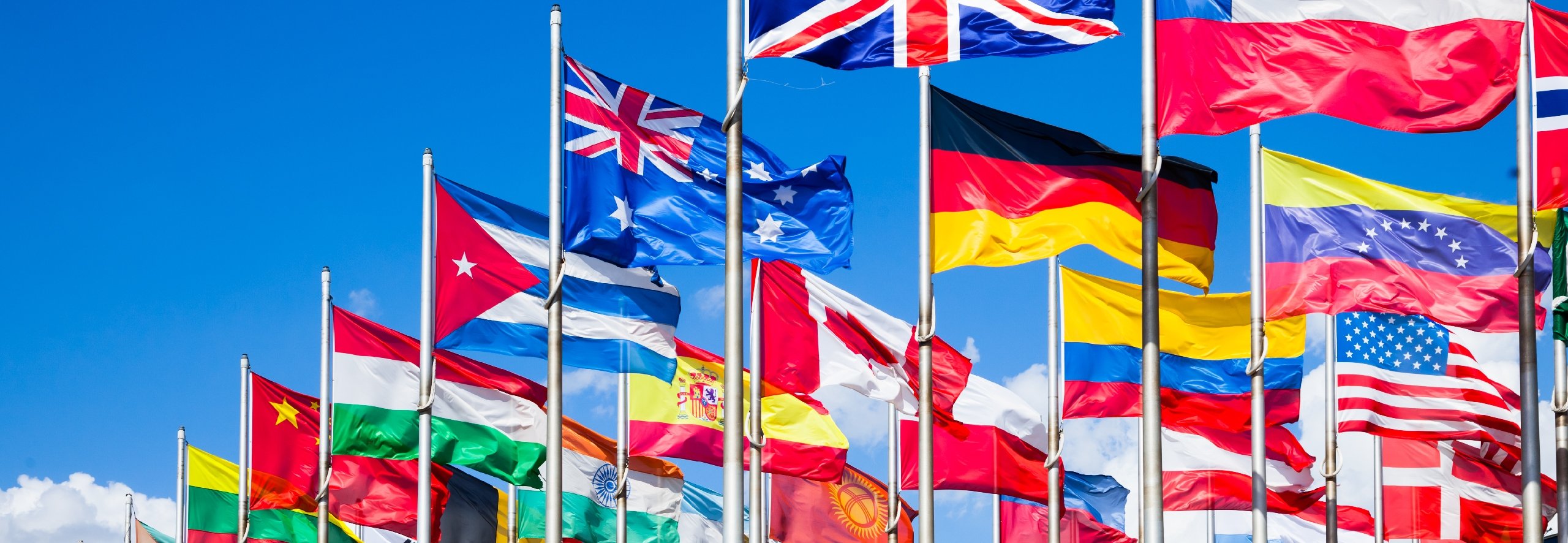From democracy and digitization to risk and regulation, we explore the future of government
IN BRIEF
- While wars rage on in Africa, Europe and the Middle East, “U.S. hegemony is increasingly contested, China vies for global influence, and emerging powers such as Saudi Arabia and Turkey assert their interests, the international order is becoming more unstable.”
- The World Bank’s Ed Olowo-Okere offers a call to action for global governments to adopt a new social contract with citizens to ensure they’re cultivating a “government for good.”
- Toomas Ilves has been on a decades-long crusade to digitize government services, and his innovative policies as president of Estonia from 2006 to 2016 accelerated the country’s journey to a parliamentary democracy after it regained its independence in 1991.
Democracy is in decline. And it has been for eight straight years, according to the latest Democracy Index from the Economist Intelligence Unit, the research division of The Economist Group. In fact, democracy around the globe is at its lowest level since the index began in 2006.
To measure the state of global democracy, the index assesses each country across five categories—electoral process and pluralism, functioning of government, political participation, political culture and civil liberties. Alarmingly, the categories that have recorded the biggest drops are civil liberties and electoral process and pluralism.
According to the report, almost half of the world’s population live in a democracy of some sort (45.4%). Only 7.8% reside in a “full democracy,” down from 8.9% in 2015. (The United States has been listed as a “flawed democracy” since 2016.) Almost two-fifths of the world’s population live under authoritarian rule (39.4%), a share that’s risen in recent years.
The age of conflict
The report, titled “Age of Conflict,” is daunting. The authors point out, “The world’s democracies seem powerless to prevent wars from breaking out around the globe and less adept at managing conflict at home.” While wars rage on in Africa, Europe, and the Middle East, “U.S. hegemony is increasingly contested, China vies for global influence, and emerging powers such as Saudi Arabia and Turkey assert their interests, the international order is becoming more unstable.”
The authors question if the democratic model developed after World War II is still viable. It’s a fair question; and one with no easy answer. But amid the growing global conflicts, and just a short time removed from a global pandemic, we thought it was a good time to explore the future of government and government services.
VISION by Protiviti, our global content resource exploring big, transformational topics that will alter business over the next decade and beyond, is embarking on a journey to assess where government is today, where it’s going and how it’s performing its most important task—providing essential services to its citizens.
"Government for good"
Fortunately, we’ve enlisted some impressive leaders and luminaries to help us do just that. The World Bank’s Ed Olowo-Okere, senior advisor, Equitable Growth, Finance and Institutions and director of The World Bank’s Future of Government report, sits down with Protiviti’s Charles Dong, Global Public Sector industry lead. Olowo-Okere offers a call to action for global government leaders to adopt a new social contract with its citizens to ensure we’re cultivating a “government for good.”
Over the next several months, we will explore how complex problems are challenging governments around the globe as they try to provide responsible, impactful, innovative, and sustainable solutions for the citizens they serve. We’ll examine the evolution of e-government, the digitization of services, data privacy, cybersecurity, national security, regulation, risk and compliance. We’ll also investigate the changing nature of public-private partnerships as well as how business leaders can navigate an ever-changing geopolitical landscape.
“U.S. hegemony is increasingly contested, China vies for global influence, and emerging powers such as Saudi Arabia and Turkey assert their interests, the international order is becoming more unstable.”
We ask Heidi Crebo-Rediker, former chief economist in the Obama Administration and international affairs lead for the Biden transition team, to lay out a plan for leaders in the C-suite and boardrooms to future-proof their business amid all this global geopolitical risk. She is a former CEO and current partner at International Capital Strategies, an executive vice president at America’s Frontier Fund, as well as an adjunct senior fellow at the Council on Foreign Relations.
We also talk with Tom Vartanian, former federal regulator and executive director of the Financial Technology & Cybersecurity Center. Vartanian, a futurist, lawyer, board member and author of The Unhackable Internet, offers a dire warning about the U.S. government’s readiness for a cyber attack.
Part of that vulnerability revolves around the race to quantum and its ability—perhaps sooner than we think—to break encryption of highly classified materials. So, we sat down with Protiviti’s Konstantinos Karagiannis, director of Quantum Computing Services, to discuss the global race to a post-quantum world and what impact, both positive and negative, it will have on governments and government services.
Speaking of government services, we also shine a light on the growing e-government movement and how digitization could be a real game changer for governments. Mauro Guillen, futurist, vice dean of the Wharton School of Business at the University of Pennsylvania, and author of 2030: How Today’s Biggest Trends Will Collide and Reshape the Future of Everything, says governments have issues—everything from trust to tech equity to transparency—and imagines how digitization could be a fix.
Former president of Estonia and current digital pioneer Toomas Ilves doesn’t have to imagine. Ilves has been on a decades-long crusade to digitize government services, and his innovative policies as president from 2006 to 2016 accelerated Estonia’s journey to a parliamentary democracy after it regained its independence in 1991.
The road ahead
Over the next several months, we’ll continue to unveil new insights and perspectives as we ask policy experts, executives, political leaders, academics and Protiviti’s own subject-matter experts to help us make sense of it all. Stay tuned for an exclusive interview with Julie Bishop, former Australia Minister for Foreign Affairs.
On April 29, we’ll unveil our exclusive findings from our Global Executive Outlook on the Future of Government research with the University of Oxford. And on May 9, tune into VISION by Protiviti’s Future of Government webinar keynoted by the World Bank.
Finally, in case you were wondering, Norway remains the globe’s most secure democracy, followed by New Zealand, Sweden, Iceland and Finland, according to the EIU Democracy Index. The United States ranks 29th, right behind Malta and two spots behind Estonia.
Ilves has been on a decades-long crusade to digitize government services, and his innovative policies as president from 2006 to 2016 accelerated Estonia’s journey to a parliamentary democracy after it regained its independence in 1991.




















